
Breaking Ground on Safer Roads in Accra, Ghana
July 16, 2018
By Mayor Adjei Sowah, Accra, Ghana
Last week, my colleagues and I broke ground at the Lapaz intersection. It is the first step in making Accra’s roads safer for all our citizens.
The Lapaz intersection is the most dangerous intersection in the city, poorly designed with limited speed restrictions and no safe passage for pedestrians. In 2015, 25 of the 253 traffic-related fatalities were around the N1 highway, along which the Lapaz intersection sits.
It is cities like Accra, in low- and middle-income countries, that bear the greatest burden of road traffic crashes. The majority of the world’s countries lack adequate laws to counter growing numbers of traffic deaths and injuries. As a result, 90 percent of the 1.3 million deaths on the road every year occur in low- and middle-income countries.
Read more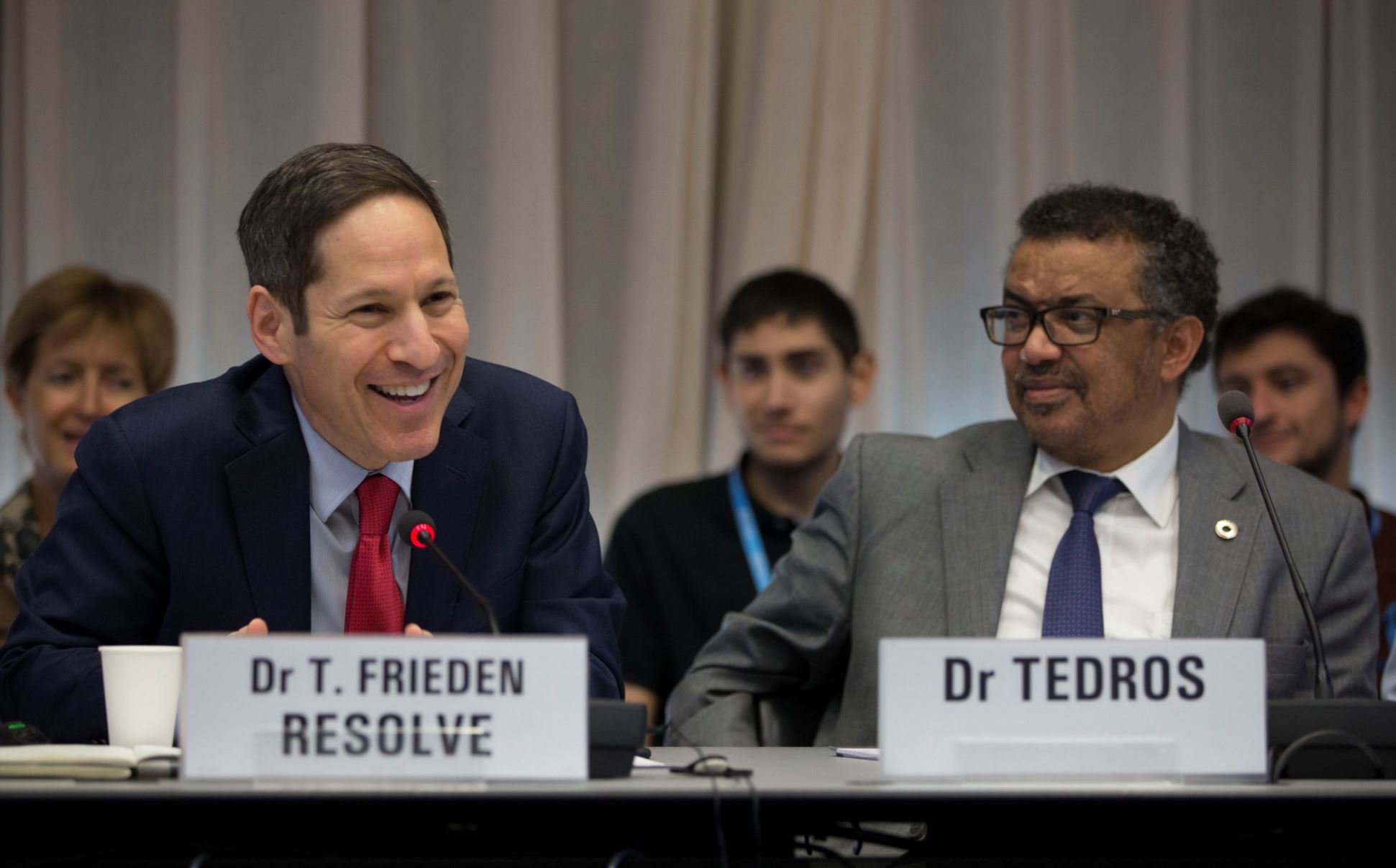
Follow the Data Podcast: Why Data is So Vital to Public Health
July 13, 2018
This week, we revisit an episode featuring a conversation with Dr. Tom Frieden, one of the world’s leading public health experts, and President and CEO of Resolve to Save Lives, and Allison Jaffin of Bloomberg Philanthropies as they discuss noncommunicable diseases (NCDs) and what it takes to protect the world.
Read more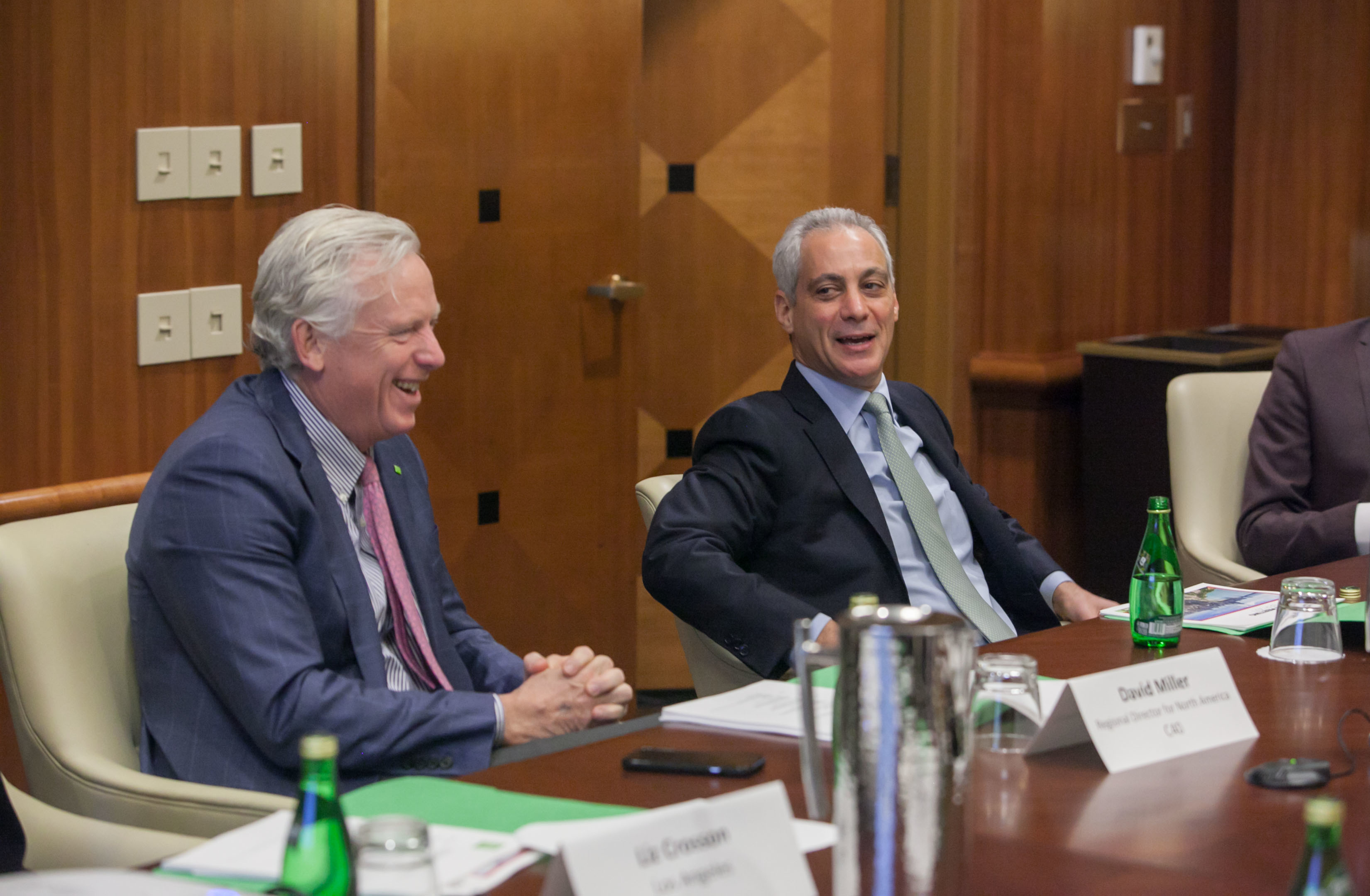
Power of Partnerships Q&A with the C40 Climate Leadership Group
July 12, 2018
The C40 Climate Leadership Group has been helping cities achieve climate goals for over a decade, and their climate planning tools are now public and available to all.
Read more
Mayors Meeting the Challenge: A Visit to Philly
July 11, 2018
By Patricia E. Harris, CEO of Bloomberg Philanthropies
One year ago, Bloomberg Philanthropies launched the American Cities Initiative, our umbrella initiative that includes all of our work in U.S. cities. Since then, we’ve made several major investments aimed at helping cities tackle their most pressing issues. We’ve doubled down on helping cities build their capacity to use data and evidence to save money, be more efficient and ultimately improve quality of life for citizens (who doesn’t like their potholes filled more quickly?). We’ve expanded a program that provides training to small and mid-sized cultural organizations in more than a dozen cities to help them think more like small businesses. And, most recently, we launched a $70-million competition to help 20 cities reduce greenhouse gas emissions as part of our larger effort to ensure the U.S. meets its commitments under the Paris Climate Agreement, despite backpedaling in Washington.
Read more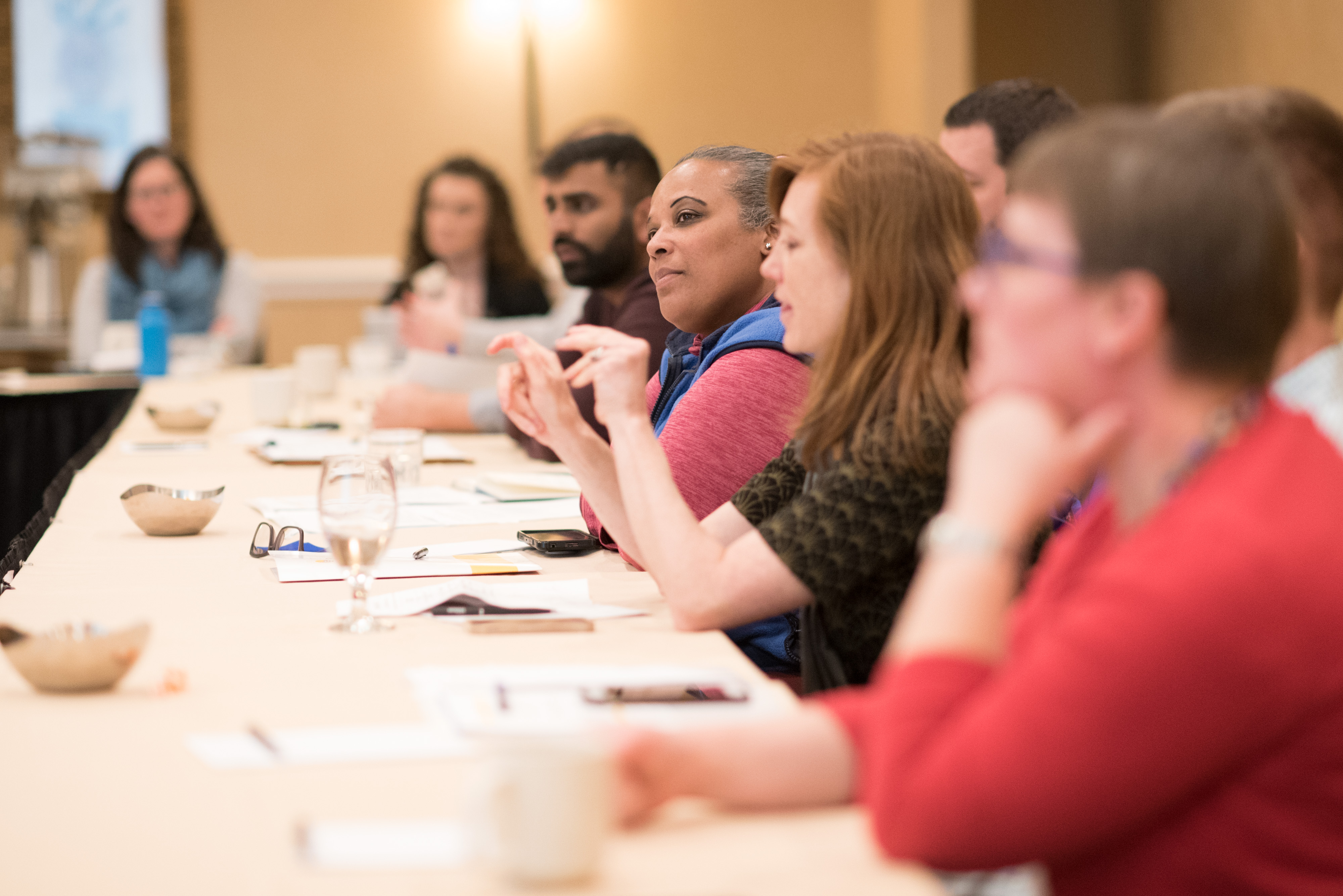
Power of Partnerships Q&A with the Institute for Market Transformation
July 9, 2018
IMT’s Julie Hughes says, “Cities are not only being bold and visionary in their commitments; they’re being strategic and pragmatic, developing and implementing plans in a data-informed method. It’s essential. We can’t afford to take steps that we think will achieve our climate goals. We need confidence in our approaches; we need to deliberately choose actions based on strong data.”
Read more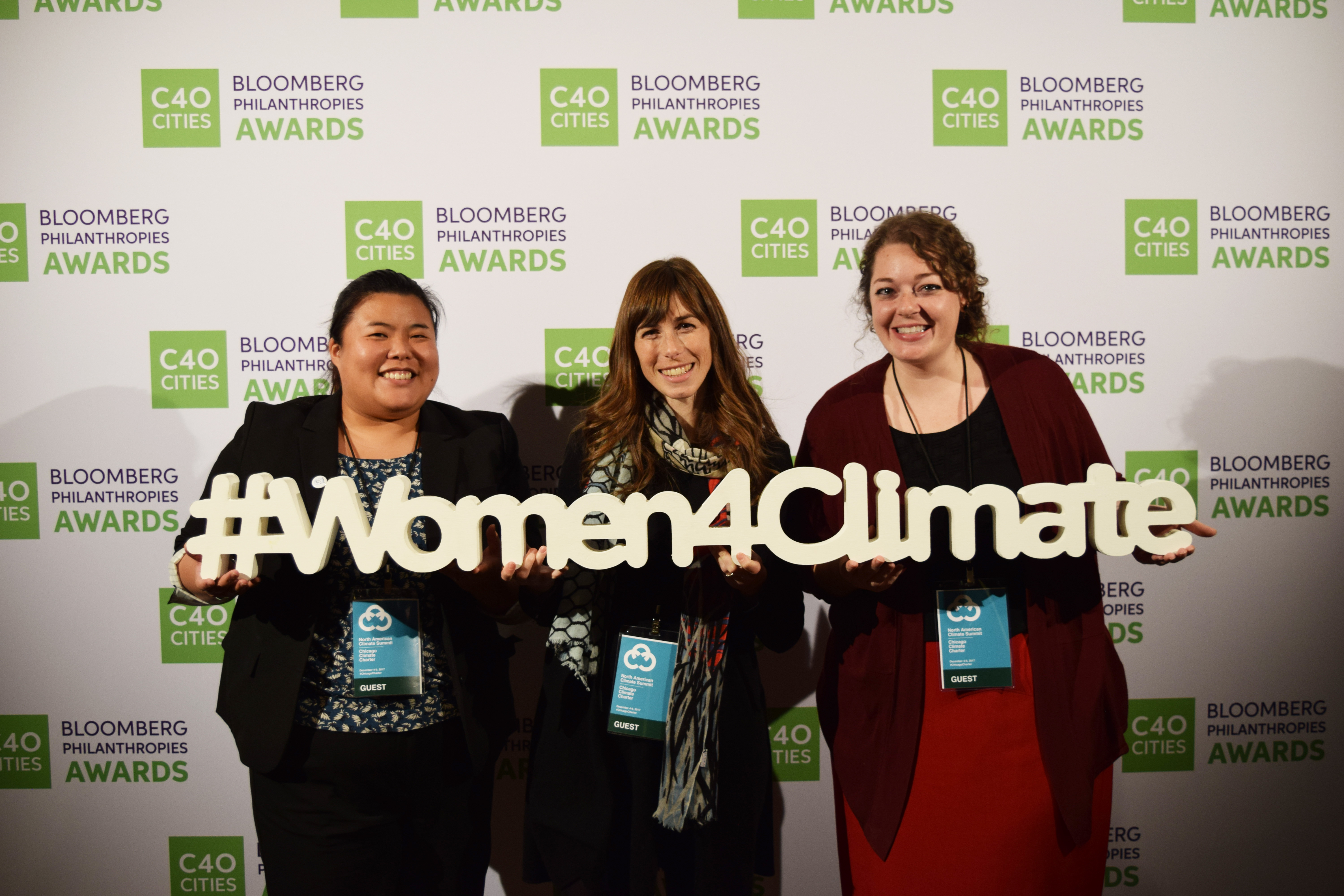
Power of Partnerships Q&A with the Natural Resources Defense Council
July 3, 2018
A partner in the American Cities Climate Challenge, the NRDC’s Kimi Narita shares her thoughts on why cities should apply to the American Cities Climate Challenge.
Read more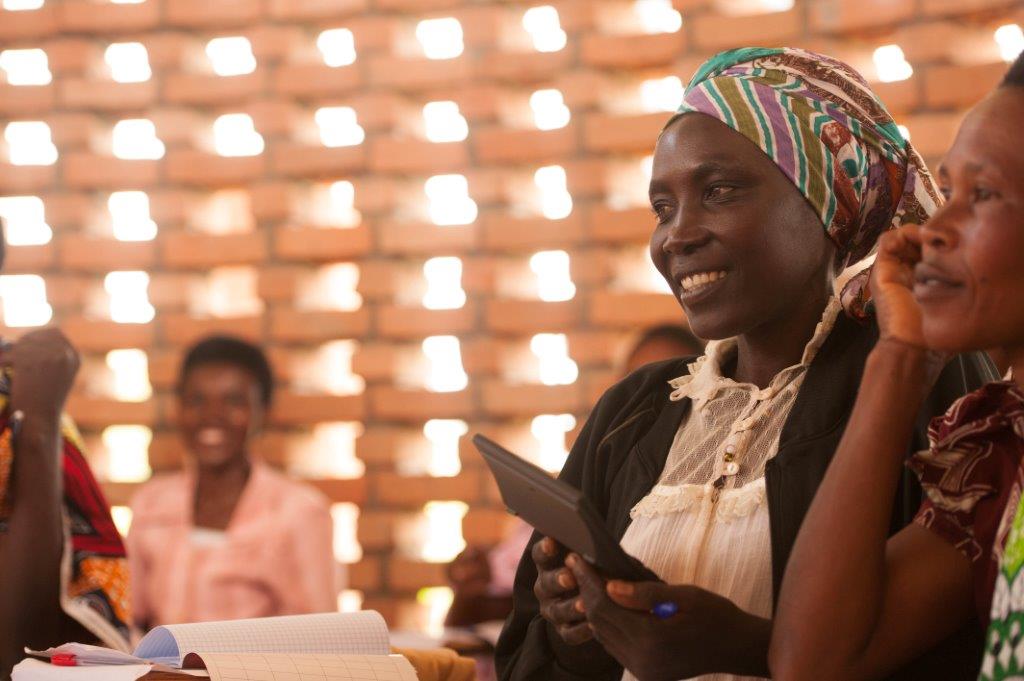
Follow the Data Podcast: Equal Footing
June 26, 2018
“A woman is economically empowered when she has both the ability to succeed and advance economically and the power to make and act on economic decisions.”
Using the guiding definition of women’s economic development from the International Center for Research on Women, Bloomberg Philanthropies and the King Baudouin Foundation partnered with Foundation Center to create Equal Footing, a freely accessible web portal for information-sharing and collaboration among those who invest and work in Rwanda, Democratic Republic of the Congo (DRC), and Burundi.
Read more
Follow the Data Podcast: The Innovative Mayor, Greg Fischer
June 14, 2018
This episode of Follow the Data presents a conversation with Louisville Mayor Greg Fischer and James Anderson, who leads Government Innovation at Bloomberg Philanthropies. Mayor Fischer is serving in his second term and says that to be a good mayor, you need the “head of a CEO, but the heart of a social worker.”
Read more
World Oceans Day 2018: Lessons Learned in the Fight to Save A Critical Resource
June 8, 2018
By Antha Williams, Head of Environment Programs, Bloomberg Philanthropies
Today is World Oceans Day – a time to raise awareness and encourage action to protect our critical global resources. At Bloomberg Philanthropies, we work to ensure better, longer lives for the greatest number of people, and that mission is the bedrock of our oceans program.
Fish is the main source of animal protein – healthier and more affordable than beef, chicken, or pork – for more than one billion people around the world. Unfortunately this vital food source is threatened by overfishing and destructive fishing practices. While the supply of fish is decreasing, demand continually increases—with the world’s population expected to grow by two billion people within the next two decades. Without proper management of our oceans, we will continue to destroy coral reefs and marine ecosystems, and jeopardize a critical global food source.
Read more
How to Win the American Cities Climate Challenge
June 7, 2018
By Antha Williams and James Anderson
Last week, Bloomberg Philanthropies announced a $70-million Challenge aimed at helping cities across America grow their economies and protect human health by taking action to fight climate change. Mike Bloomberg will be emailing the mayors of the 100 largest U.S. cities about it — so keep an eye on your inbox, or tell your mayor to!
Here’s what it’s all about: When it comes to climate change, cities are both the problem and the solution. Globally, they’re the source of 70 percent of the emissions that are leading to climate change. But they’re also where creative solutions, combined with bold leadership from mayors, can make a real difference.
Read more